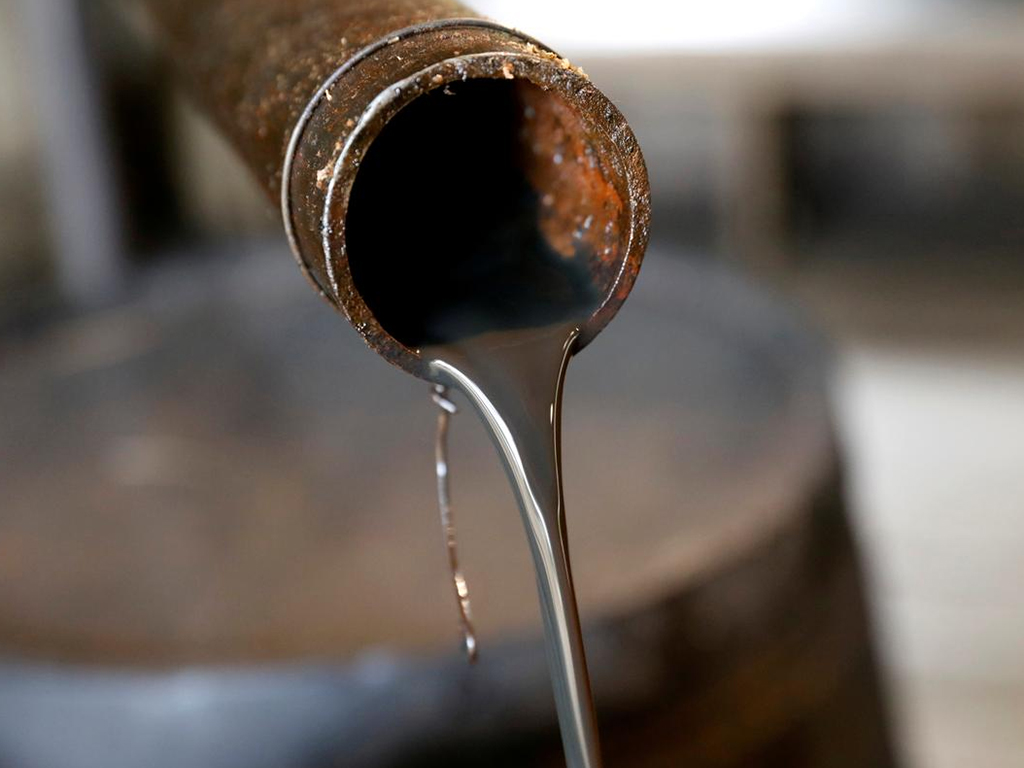Oil selloff resumes; set for steepest weekly fall since 2008
- Brent and WTI on track for fourth straight weekly falls
- Trump will enter Saudi-Russia price war 'at appropriate time'
- Kremlin said we don't need anyone to intervene
- Texas regulator urges state to consider oil output limits

NEW YORK: US crude fell on Friday and was on track for its biggest weekly decline since 2008 as global demand dried up due to the coronavirus and as Washington scrambled to respond, with officials saying an envoy would head to Saudi Arabia to deal with fallout of a Saudi-Russia oil price war.
Oil futures pared losses after a report from the Wall Street Journal that Texas oil industry regulators were set to open a dialogue with the Organization of the Petroleum Exporting Countries.
Reuters has not independently verified that information. Senior US officials told Reuters they will send a US Energy Department official to Saudi Arabia for several months to work on stabilizing energy markets.
"The market is wondering if this is going to be a way to reduce supply in this situation," said Phil Flynn, analyst at Price Futures Group in Chicago.
US crude has lost half its value in the past two weeks, and Brent has dropped about 40%, as the pandemic has cut demand at the same time as a collapse of coordinated output cuts by producers from the Organization of the Petroleum Exporting Countries (OPEC) and others including Russia.
Oil executives and regulators are reaching out to the Trump administration to float the idea of cutting Texas oil output 10% if the federal government could negotiate with Saudi Arabia and Russia to do the same, said Ryan Sitton, one of the three elected members of the Texas Railroad Commission, which regulates oil and gas.
Saudi Arabia said it would push its production to a record 12.3 million bpd and booked shipments to send oil around the globe, refusing entreaties to rein in its output. US elected officials have urged the Trump Administration to get involved.
On Friday, Brent crude futures fell 27 cents to $28.20 a barrel at 1:25 p.m. EDT (1725 GMT). Brent was on track for a weekly loss of around 16% and its fourth consecutive weekly decline.
US crude futures for April fell $1.42, or 5.6%, to $23.80 a barrel. The front-month contract expires on Friday. The more active US crude contract for May was down 98 cents, or 3.8%, at $24.93.
WTI was on track for a weekly loss of around 23%, the steepest since 2008.
Prices rebounded some on Thursday, when US crude posted its largest one-day gain in history.
Traders and analysts were scrambling to revise down forecasts for oil demand, as government lockdowns to contain the coronavirus outbreak have rapidly cut fuel consumption. Vitol, the world's largest oil trader, said Friday that global demand could fall by 10% or more.
"Global demand could easily drop by 10 million barrels per day or more," said Giovanni Serio, head of research at Vitol. Others, including IHS Markit and Standard Chartered bank, have made similar predictions.
To counter the effect of the spreading virus, the world's richest nations are pouring unprecedented aid into the global economy to fend off a recession.
Sources told Reuters that China was set to unleash trillions of yuan of fiscal stimulus to revive an economy facing its first contraction in four decades.
The announcements by central banks helped lift oil prices by 10% earlier in Friday's session, but crude futures turned negative as demand concerns persisted.
US oil production has surged to nearly 13 million bpd, mostly as a result of shale production, but those companies have struggled to generate returns for investors. Numerous players are cutting spending drastically.
"The low prices are threatening to hit the US shale oil industry hard, thereby jeopardizing the US position as the world's largest oil producer," Commerzbank analyst Carsten Fritsch said.
US President Donald Trump said on Thursday that he would act on the price war at the appropriate time, though he said low gasoline prices were good for US consumers.
On Friday, the Kremlin said Russia and Saudi Arabia have good relations when it comes to oil markets and Moscow does not need anyone to intervene.
Russia denied it was in a price war with Saudi Arabia
If oil producers do come back to the table, Goldman Sachs estimates supply restraint by core OPEC producers could push up second-quarter Brent prices to $30 a barrel, while US measures to support the market could underpin prices in the near term.
























Comments
Comments are closed.